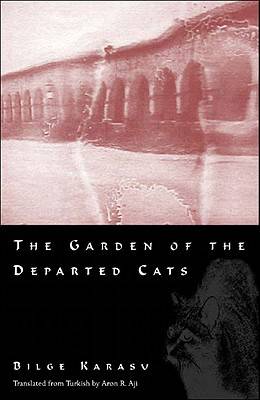
Bedankt voor het vertrouwen het afgelopen jaar! Om jou te bedanken bieden we GRATIS verzending (in België) aan op alles gedurende de hele maand januari.
- Afhalen na 1 uur in een winkel met voorraad
- In januari gratis thuislevering in België
- Ruim aanbod met 7 miljoen producten
Bedankt voor het vertrouwen het afgelopen jaar! Om jou te bedanken bieden we GRATIS verzending (in België) aan op alles gedurende de hele maand januari.
- Afhalen na 1 uur in een winkel met voorraad
- In januari gratis thuislevering in België
- Ruim aanbod met 7 miljoen producten
Zoeken
Omschrijving
In an ancient Mediterranean city, a tradition is maintained: every ten years an archaic game of human chess is staged, the players (visitors versus locals) bearing weapons. This archaic game, the central event of The Garden of the Departed Cats, may prove as fatal as the deadly attraction our narrator feels for the local man who is the Vizier, or Captain, of the home team. Their "romance" (which, though inconclusive, magnetizes our protagonist to accept the Vizier's challenge to play) provides the skeletal structure of this experimental novel. Each of their brief interactions works as a single chapter. And interleaved between their chapters are a dozen fable-like stories. The folk tale might concern a 13th-century herbal that identifies a kind of tulip, a "red salamander," which dooms anyone who eats it to never tell a lie ever again. Or the tale might be an ancient story of a terrible stoat-like creature that feeds for years on the body of whomever it sinks its claws into, like guilt. These strange fables work independently of the main narrative but, in curious and unpredictable ways, (and reminiscent of Primo Levi's The Periodic Table), they echo and double its chief themes: love, its recalcitrance, its cat-like finickiness, and its refusal to be rushed.
With many strata to mine, The Garden of the Departed Cats is a work of peculiar beauty and strangeness, the whole layered and shiny like a piece of mica.
With many strata to mine, The Garden of the Departed Cats is a work of peculiar beauty and strangeness, the whole layered and shiny like a piece of mica.
Specificaties
Betrokkenen
- Auteur(s):
- Vertaler(s):
- Uitgeverij:
Inhoud
- Aantal bladzijden:
- 240
- Taal:
- Engels
Eigenschappen
- Productcode (EAN):
- 9780811215510
- Verschijningsdatum:
- 12/01/2004
- Uitvoering:
- Paperback
- Formaat:
- Trade paperback (VS)
- Afmetingen:
- 131 mm x 204 mm
- Gewicht:
- 281 g

Alleen bij Standaard Boekhandel
+ 52 punten op je klantenkaart van Standaard Boekhandel
Beoordelingen
We publiceren alleen reviews die voldoen aan de voorwaarden voor reviews. Bekijk onze voorwaarden voor reviews.









